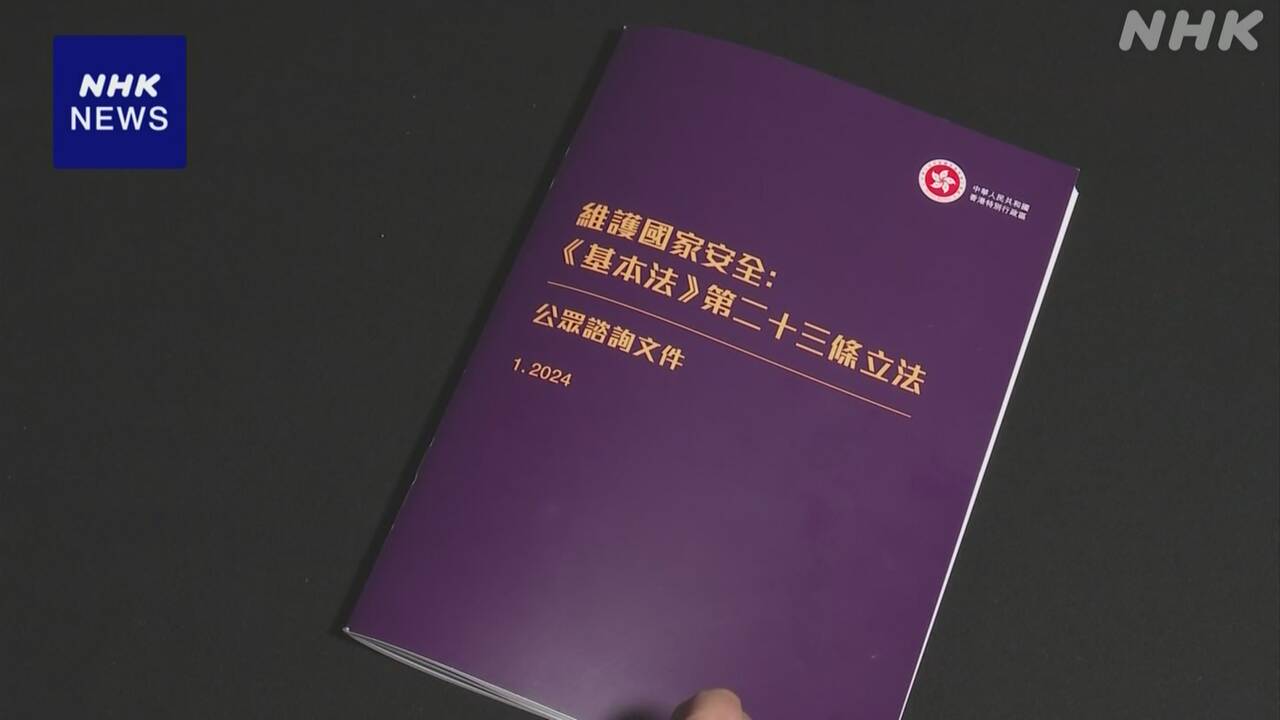The Hong Kong government solicited opinions on the enactment of a National Security Ordinance to crack down on acts that threaten national security, and said that most of the opinions received were in favor of it, and that it had the support of the majority of citizens. announced.
However, there are voices of concern in Europe and the United States, saying that it will have a negative impact on people's rights and freedoms.
The Hong Kong government has been aiming to enact Hong Kong's own National Security Ordinance four years ago, saying this is to supplement the Hong Kong National Security Law that came into effect in 2020.
A summary released by the Hong Kong government in January
targets acts that threaten national security, including theft of state secrets, espionage, and interference in Hong Kong by foreign forces.
When the Hong Kong government solicited opinions on this, it received over 13,000 opinions by the 28th, of which 98.6% were in favor of enactment, and stated on the 29th, ``We have received the support of most citizens.'' ' announced.
The Hong Kong government aims to submit the draft ordinance to parliament as soon as possible for its enactment.
However, concerns have been voiced over the ordinance, and Hong Kong democracy activist and currently imprisoned Hong Kong democracy activist Zou Hung* Tou said from prison that ``the concept of national security is comprehensive and arbitrary.'' There were opposing opinions, such as, ``There is a possibility of interpretation.''
On the 28th, the British Foreign Office called for reconsideration, saying, ``The ordinance has a negative impact on the rights and freedoms of the people of Hong Kong.'' On the 28th, the US State Department also said, ``The definition of state secrets and interference by foreign forces is ambiguous.'' '', and expressed concern that the ordinance would ``undermine one country, two systems.''
*To is “tan” and “彡”.

